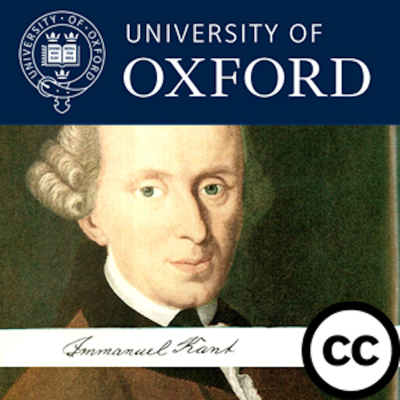
Kant's Critique of Pure Reason
Englisch
Kostenlos bei Podimo
Kostenlos hören bei Podimo
Starte jetzt und verbinde dich mit deinen Lieblingspodcaster*innen
- Vertraut von über 1 Mio. deutschen Hörer*innen
- Über 1.000 lokale Podcasts und Shows – nur bei Podimo
- Keine Zahlung nötig
Mehr Kant's Critique of Pure Reason
A lecture series examining Kant's Critique of Pure Reason. This series looks at German Philosopher Immanuel Kant's seminal philosophical work 'The Critique of Pure Reason'. The lectures aim to outline and discuss some of the key philosophical issues raised in the book and to offer students and individuals thought provoking Kantian ideas surrounding metaphysics. Each lecture looks at particular questions raised in the work such as how do we know what we know and how do we find out about the world, dissects these questions with reference to Kant's work and discusses the broader philosophical implications. Anyone with an interest in Kant and philosophy will find these lectures thought provoking but accessible.
Alle Folgen
8 FolgenThe discipline of reason: The paralogisms and Antinomies of Pure Reason.
Lecture 8/8. Reason, properly disciplined, draws permissible inferences from the resulting concepts of the understanding. The outcome is knowledge. When rightly employed, the perceptual and cognitive powers match up the right way with the real world and ground the knowledge-claims of the developed sciences. However, there is a strong tendency to stretch these processes beyond the permissible boundaries and seek what Kant refers to as "transcendental ideas" that go beyond the realm of actual or possible experience. Creative Commons Attribution-Non-Commercial-Share Alike 2.0 UK: England & Wales; http://creativecommons.org/licenses/by-nc-sa/2.0/uk/
The "Self" and the Synthetic Unity of Apperception
Lecture 7/8. Kant argues that: "The synthetic unity of consciousness is... an objective condition of all knowledge. It is not merely a condition that I myself require in knowing an object, but is a condition under which every intuition must stand in order to become an object for me". Creative Commons Attribution-Non-Commercial-Share Alike 2.0 UK: England & Wales; http://creativecommons.org/licenses/by-nc-sa/2.0/uk/
Concepts, judgement and the Transcendental Deduction of the Categories
Lecture 6/8. Empiricists have no explanation for how we move from "mere forms of thought" to objective concepts. The conditions necessary for the knowledge of an object require a priori categories as the enabling conditions of all human understanding. Creative Commons Attribution-Non-Commercial-Share Alike 2.0 UK: England & Wales; http://creativecommons.org/licenses/by-nc-sa/2.0/uk/
Idealisms and their refutations
Lecture 5/8. The very possibility of self-awareness (an "inner sense" with content) requires an awareness of an external world by way of "outer sense". Only through awareness of stable elements in the external world is self-consciousness possible. Creative Commons Attribution-Non-Commercial-Share Alike 2.0 UK: England & Wales; http://creativecommons.org/licenses/by-nc-sa/2.0/uk/
How are a priori synthetic judgements possible?
Lecture 4/8. Kant claims that, "our sense representation is not a representation of things in themselves, but of the way in which they appear to us. Hence it follows that the propositions of geometry... cannot be referred with the assurance to actual objects; but rather that they are necessarily valid of space... [and] space is nothing else than the form of all external appearances". [Prolegomena 286-287] Creative Commons Attribution-Non-Commercial-Share Alike 2.0 UK: England & Wales; http://creativecommons.org/licenses/by-nc-sa/2.0/uk/















































